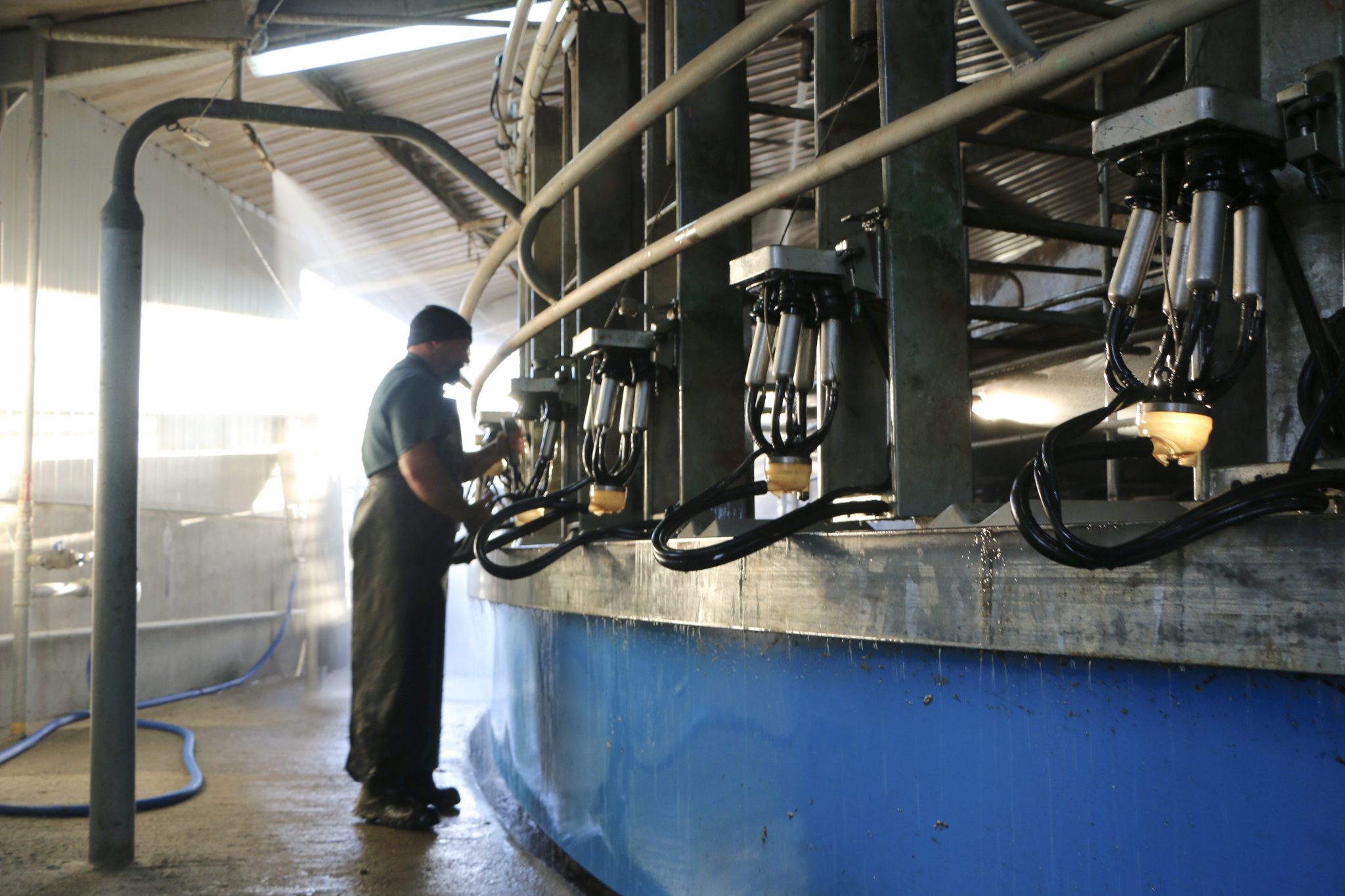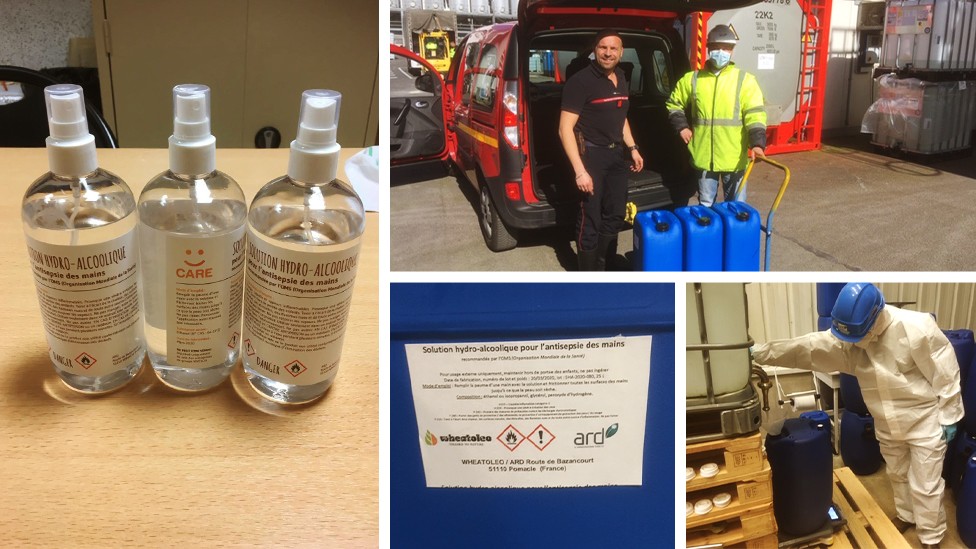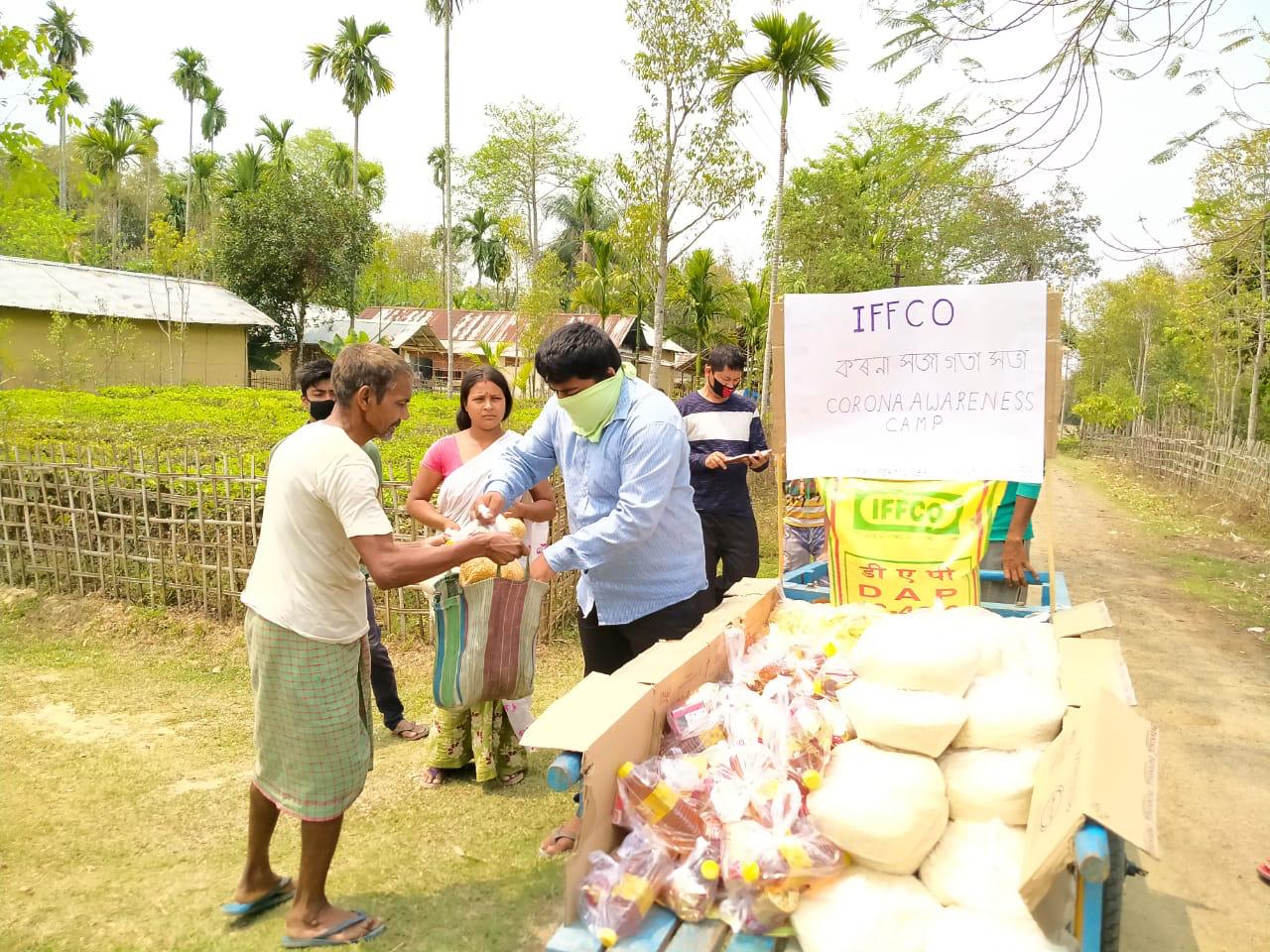As Covid-19 continues to impact countries all over the world, global food security is at risk.
The pandemic is affecting food supply and demand, posing challenges to small-scale farmers who face difficulties accessing markets to sell their products or buy essential inputs.
While the majority of agri food co-operatives are continuing to operate, they have to adapt to a new environment.
In Spain the Federation of Agricultural Co-operatives launched a call for farm workers. The federation estimates that between 80,000 and 100,000 workers will be needed.
The appeal follows a decree issued by the Spanish government on 7 April, through which tens of thousands of migrants or unemployed people who receive state benefits will be allowed to work in agriculture for a three-month period.
Agustín Herrero, general director of the federation, said: “Covid-19 is having such an impact because it is a circumstance we could not predict, and which has affected everyone to a larger or smaller extent.
“In the case of our sector, generally, co-ops continue to operate as normal as possible, but highly conditioned by the production sector and the marketing channel to which their products are destined.”
He explained that certain sectors are more affected than others due to the shutdown of the hotels, restaurants and catering sector, which was the main destination for wine and meats such as lamb and beef – especially the cuts that have the highest added value.
The plants and flowers sector ceased operating following the closure of florists, local markets and the cancellation of weddings and other parties, which bring a significant proportion of usual sales. The goat milk sector is also affected because there are currently no buyers for the manufacture of cheese.
“The situation is changing as the days go by, and other sectors may encounter new problems due to changes in the consumption habits of citizens,” said Mr Herrero, adding that the Spanish government is working to provide direct aid to sheep meat farmers, in addition to a comprehensive package of state-backed loans.
“We hope that the European Commission will implement intervention measures in the meat sectors, which will be the most affected by the closure of the Horeca [hospitality] sector,” he said.
Copa and Cogeca, the united voice of European farmers and their co-ops, also has serious concerns about the impact of the pandemic, and is calling on the European Commission to take urgent action to protect food security.
The organisation presented data from their members showing how the dairy, beef, sheep, goat, and fruit and veg sectors are being affected.
“At the same time, the sector is currently facing unprecedented circumstances caused by factors beyond agriculture,” said Pekka Pesonen, Copa and Cogeca secretary general, in a statement on 7 April.
“While we recognise the European Commission’s and member states’ efforts to ensure that the internal market functions smoothly, we reiterate the need for additional targeted market measures for the livestock sector, including exceptional measures, financed outside of the CAP budget.”
While the dairy sector is in peak season, prices of several products have dramatically decreased. Thierry Roquefeuil, chair of the Copa and Cogeca Working Party on Milk and Dairy Products, believes the EU dairy market should not be allowed to deteriorate any further.
He said: “Copa and Cogeca are calling for timely action to trigger the necessary measures and for private storage to be activated for all dairy products. Ensuring private storage for skimmed milk powder, all types of cheeses, butter, including for frozen storage of buffalo milk and/or buffalo curd would have a beneficial impact on ensuring year-round food security. It is also important to assess the impact that the closure of schools has had on the delivery of milk and dairy products to children in schools and to avoid unnecessary restrictions stemming from competition law in this force majeure situation.”
The apex body raised similar concerns about the impact Covid-19 is having on the beef and veal sector, affected by drops in demand and increased costs. Likewise, in the sheep and goat sector, the pandemic has led to a downward trend for prices at a time when there would usually be an upward trend.
Michèle Boudoin, chair of the Copa and Cogeca Working Party on Sheep, said: “The seasonal nature of this production means that this cannot be pushed back to another time of the year. At the same time, imported products are coming onto the EU market at the only time of the year when the market can generate a revenue for sheep and goat producers.”
Copa and Cogeca is also asking the European Commission to adopt “a more targeted tariff rate quota management”. Tariff rate quotas allow a pre-determined quantity of a product to be imported at lower import duty rates than the duty rate normally available for that product.
According to the trade body, the fruit and veg sector is also being disrupted by shortage of labour, changes in demand and consumption and problems in the transportation of goods and input, the movement of people.
“Copa and Cogeca call for exceptional measures to be made available to all affected fruit and vegetable growers and for adjustments to the administrative management rules of operational programmes of producer organisations to reduce the constraints that they are currently experiencing” said Luc Vanoirbeek, chair of the Working Party on Fruit and Vegetables.
“With this unbalanced market situation spreading across several EU agricultural sectors, Copa and Cogeca ask the Commission to allocate a dedicated budget that falls outside the CAP budget,” added Mr Pesonen.
Copa and Cogeca warned that Covid-19 will have long-lasting effects on the agri food sector.
Similar challenges are faced by co-ops in other countries. Canadian dairy business Agropur is reviewing its operations and cutting jobs.
 The co-op says it will eliminate certain positions and temporarily lay off some employees who are not assigned to essential operational duties.
The co-op says it will eliminate certain positions and temporarily lay off some employees who are not assigned to essential operational duties.
The restructure will affect 260 Canadian employees, who represent 3% of Agropur’s global workforce of 8,800. On 2 April the co-op announced that 60 positions were being eliminated and 200 employees were being temporarily laid off.
“These are difficult decisions to make but they are necessary in order to maintain the sustainability of our business,” said CEO Émile Cordeau. “Our goal is to bring the temporarily laid-off employees back to work as soon as we can resume the normal course of business.
“A support team has been set up to help the employees who will be leaving the organisation transition and guide them through the process of applying for the government support programmes.”
The co-op says it has also taken measures to protect the health and safety of its employees and adopted a business continuity plan to ensure it can continue delivering high-quality dairy products to its customers and consumers.
Responding to the pandemic, Agropur has provided staff detailed guidelines regarding travel restrictions, telework, hygiene, disinfection, and mandatory reporting of illness while access control at all sites for all employees, suppliers and visitors has been toughened.
In addition to continuing production, some co-ops are also beginning to produce protective equipment for internal use and for distribution to medical services.
 France’s largest grain co-operative, Vivescia, has responded to the Covid-19 crisis setting up production of hand sanitiser. Since the start of the crisis, its biotechnology R&D subsidiary, ARD, has produced 15,000 litres of hand sanitiser.
France’s largest grain co-operative, Vivescia, has responded to the Covid-19 crisis setting up production of hand sanitiser. Since the start of the crisis, its biotechnology R&D subsidiary, ARD, has produced 15,000 litres of hand sanitiser.
Production, which follows World Health Organisation guidelines, began to supply workers at ARD, as well as Vivescia its other subsidiaries. But when the national shortage of hand sanitiser became apparent the co-op stepped up production, to supply to the medical sector.
Vivescia says several tonnes of hand sanitiser have already been delivered to a number of hospitals and public institutions, including Nord Ardennes Charleville-Mézières Intercommunal hospital, Rethel hospital and retirement home, Amiens university hospital, local police stations, pharmacies, medical centres, and general practitioners. ARD is looking at stepping up production from 5,000 to 7,000 litres of gel per day to respond to demand.
In India, the Indian Farmers Fertiliser Cooperative (Iffco) is using its extensive marketing network to deliver critical goods in areas otherwise hard to access.
 Iffco has distributed over 350,000 Vitamin-C Tablets, 50,000 medicinal soaps, 20,000 masks, 5,000 sanitisers and numerous medical kits across different locations all across India. Medical equipment for hospital staff and health workers was also provided in the places facing a shortage of equipment.
Iffco has distributed over 350,000 Vitamin-C Tablets, 50,000 medicinal soaps, 20,000 masks, 5,000 sanitisers and numerous medical kits across different locations all across India. Medical equipment for hospital staff and health workers was also provided in the places facing a shortage of equipment.
All of Iffco’s plants remain fully operational given the critical importance of the Industry. The co-op is providing workers a regular supply of sanitisers, soaps, and masks and has sought to implement social distancing policies across its sale points, warehouses and societies. Trucks used for transportation of fertilisers are also being sanitised regularly.
To further support workers, Iffco has distributed food supplies to those from disadvantaged backgrounds, who are likely to be most affected by the crisis. And to prevent the spread of the virus, Iffco is leading an awareness campaign, informing staff and members about how they can stay safe. The co-op has also contributed Rs 250m (£2.6m) to the national Covid-19 emergency fund.
Dr U. S. Awasthi, managing director of Iffco, said: “Though financial contribution is very important in the fight against the pandemic, social awareness remains a very important aspect of containing the spread. That is why Iffco, through its employees, is contributing in this time of need. I believe the campaign will help the farming and rural community by not letting the virus spread into rural areas.”
Similar measures were implemented at Fairtrade certified co-op United Nilgiri Tea Estates (UNITEA) in Tamil Nadu, India. Chair Titus Pinto told Fairtrade International: “We have issued 10kgs of rice, 1kg of sugar, 750 grammes of lentils, half a litre of cooking oil and 100 grammes each of salt, pepper and other spices to each family. This has all been paid for out of the Fairtrade Premium.”
 He added: “We sanitise all dwellings and public places once every two days. The estate doctor has kept the clinic and hospital open, and we have trained all workers on health and safety and precautionary measures. If they have to carry out essential work, they are only allowed to do so if they have a doctor’s certificate.”
He added: “We sanitise all dwellings and public places once every two days. The estate doctor has kept the clinic and hospital open, and we have trained all workers on health and safety and precautionary measures. If they have to carry out essential work, they are only allowed to do so if they have a doctor’s certificate.”
Co-ops around the world are trying to continue to feed nations while also making a difference during the pandemic.
However, the volatile market environment, coupled with labour shortages and closures of restaurants is posing considerable challenges to the sector. Governments will have to support the sector, both on short and long term, to ensure co-ops are able to continue producing and marketing food.